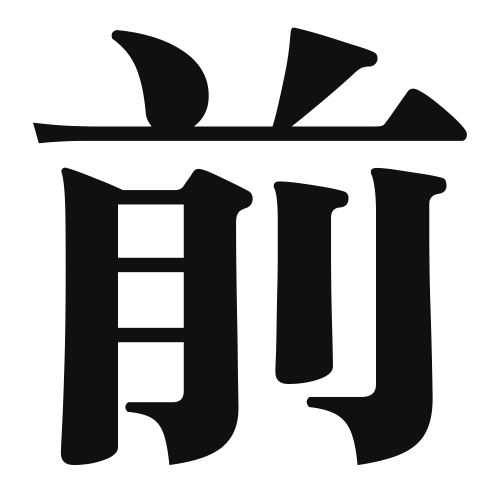1. Overview of Meaning
The kanji “前” (pronounced “zen” or “mae”) means “front” or “before.” It is used to indicate a position in space or time that is ahead of something else.
2. Formation and Radical
The kanji “前” is a compound character that combines the elements of “before” and “face.” It is classified as a 形声文字 (phono-semantic compound), where the left part suggests the meaning and the right part indicates the pronunciation.
The radical of “前” is “前” itself, which is often associated with concepts of direction and position.
3. Examples of Usage
Common words and phrases that include “前” are:
- 前日 (zenjitsu) – the day before
- 前進 (zenshin) – advance or move forward
- 前提 (zentei) – premise
Example sentences in daily conversation:
- 明日は前日です。(Ashita wa zenjitsu desu.) – Tomorrow is the day before.
- 私たちは前進しなければなりません。(Watashitachi wa zenshin shinakereba narimasen.) – We must move forward.
4. Synonyms and Antonyms
Similar kanji with related meanings include:
- 先 (saki) – meaning “ahead” or “previous,” but often used in contexts like “first” or “prior.”
Antonyms include:
- 後 (ato) – meaning “after” or “behind.”
5. Cultural and Historical Background
The kanji “前” is deeply rooted in Japanese culture, often used in various contexts such as time, space, and even in traditional practices. It appears in proverbs and idiomatic expressions, such as:
- 前向き (maemuki) – meaning “positive” or “forward-looking.”
- 前例 (zenrei) – meaning “precedent.”
These expressions reflect the importance of looking ahead and considering past experiences in Japanese culture.
